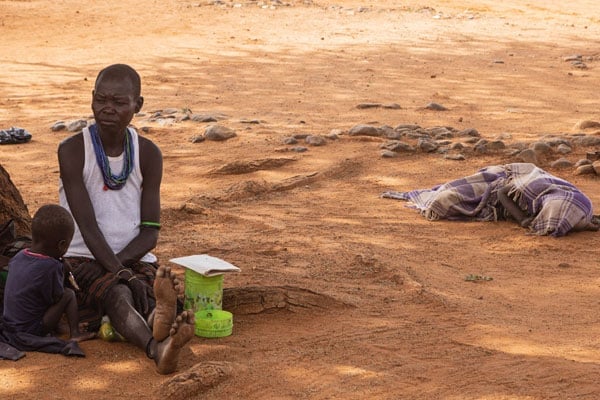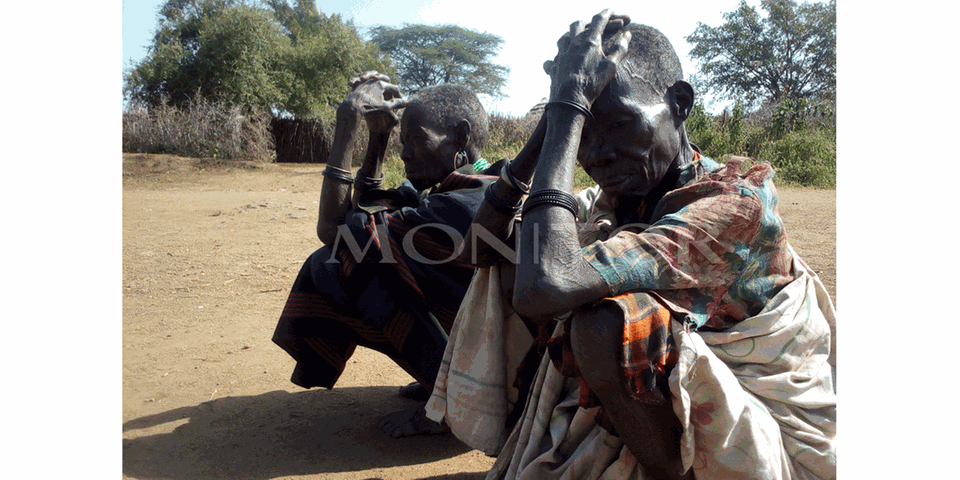Eating wild leaves, mangoes while starving for change

What you need to know:
- The Minister of Foreign Affairs has made a startling assertion, labelling Ugandans who succumb to hunger as idiots. This sweeping indictment is predicated on the assumption that those who are dying from hunger are merely indolent.
Uganda, ‘The Pearl of Africa’, is a land overflowing with fertile soils and a climate perfect for farming. Yet it wrestles with a riddle that boggles the mind - the ghost of hunger. This riddle isn’t a new kid on the block. The folks of Karamoja in Uganda were hit hard by a brutal famine in 1980, as history tells us.
This famine is seen as one of Uganda’s worst nightmares, mainly because of its sky-high death toll. It’s estimated that between 20,000 to 50,000 folks, making up roughly 14 percent of Karamoja’s population, bid farewell to life during this time. Little ones were in the firing line, with a jaw-dropping 60 percent mortality rate. The aftershocks of this famine are still shaking the region to this day.
Some years ago, the Teso sub-region was struck by a devastating famine, following an extended period of drought and floods. This catastrophe forced the inhabitants to survive on mangoes, while others tragically lost their lives. Tarsis Kabwogyere, who was serving as the Minister of Disaster Preparedness at the time, described the local’s dying of hunger as “backwardness with horns,”. He challenged the Itesot, who were succumbing to the famine, to dry and store mangoes. This measure of food security, he believed, could have alleviated the impact of the famine.
Fast forward to the present day, the narrative has taken a disconcerting turn. The Minister of Foreign Affairs has made a startling assertion, labelling Ugandans who succumb to hunger as idiots. This sweeping indictment is predicated on the assumption that those who are dying from hunger are merely indolent.
This statement, while shocking, prompts a deeper examination of the issue at hand. Is it genuinely idiocy that is driving Ugandans to the brink of starvation? Or could it be that the real idiocy lies within a government that has failed to eradicate hunger despite being in power for an uninterrupted span of 38 years and still counting? This question warrants serious contemplation. After all, a government’s primary duty (please note that I am not implying that the government should put food on our tables) is to ensure the well-being of its citizens.
Despite the existence of comprehensive policies such as the Uganda Nutrition Action Plan, the National Strategy Towards Zero Hunger, and the National Development Plan, the spectre of hunger continues to cast a long shadow over the nation. These strategies, meticulously crafted by technical experts, seem to have fallen short of their ambitious objectives. This raises questions about the commitment of those tasked with the effective implementation of these policies.
The regions of Karamoja and Teso stand as a stark testament to this failure. Plagued by recurrent famines, the causes of hunger in Karamoja and Teso are manifold - food insecurity, climate change-induced droughts, insecurity stemming from livestock raids, absence of irrigation schemes and water harvesting facilities, low crop yields, absence of national or regional food reserves, crop destruction by wild animals, and pervasive poverty. Each of these factors and not the victims’ idiocy contributes to the complex tapestry of hunger that has enveloped the region.
Proposed solutions to this crisis are many, yet the government’s apparent indifference suggests that it is not a priority. The irony is palpable - a ministry entrusted with disaster preparedness often finds itself caught off guard, only springing into action post-disaster. This reactive approach, as opposed to a proactive one, only serves to exacerbate the crisis.
The consequence of this hunger crisis is as vast as the African plains. The death toll is climbing faster than a monkey up a tree, and the survivors, driven by a hunger as fierce as a lion’s, are flooding the streets of Kampala. This isn’t just a crisis; it’s a national embarrassment. The sight of bodies as thin as reeds and the cries of hungry children echo through the land, serving as a stark reminder of the human cost of this crisis. It’s a scene that would make even the toughest elephant shed a tear.
It is high time that the government shifts its gaze from castigating the victims to addressing the root causes of this crisis. Only then can Uganda hope to transform from a land of feasting on mangoes while starving for change to a nation that ensures a full plate for every citizen. Yes, the road to this goal may be as bumpy as a Ugandan dirt road, but with political will and concerted effort, it’s a journey worth taking. After all, the people of Uganda deserve a government that serves up solutions, not just empty calories of rhetoric and blame games.
Bon appétit, Uganda!
Peter Cromwell Okello, United Kingdom




